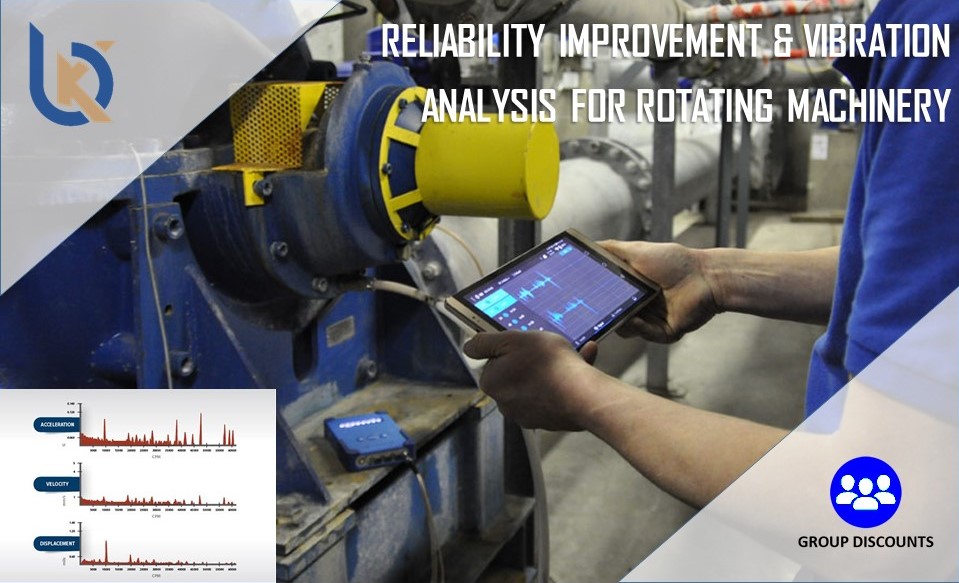| Training Code | Date | Duration | Venue | Fees |
|---|---|---|---|---|
| Keep following, we are updating our training schedules. | ||||

Rotating machinery is essential in a wide range of industrial applications, and keeping it running efficiently and reliably is a major concern for operations managers. To ensure the reliability and longevity of your rotating machinery, you need to have a comprehensive understanding of vibration analysis.
A Vibration Analysis for Rotating Machinery course can provide you with a comprehensive introduction to the principles, techniques, and tools used in vibration analysis. This course will cover the fundamentals of vibration analysis and provide an in-depth overview of the most commonly used vibration analysis tools and techniques. You will gain an understanding of the types of vibration signals generated by rotating machinery, the differences between the various types of vibration, and the advantages and limitations of each type.
Additionally, you will learn how to interpret vibration data and apply it to troubleshooting and maintenance activities. By the end of the course, you will be well-equipped to assess the condition of your rotating machinery and make informed decisions about how to maintain and improve its performance.
This BK’s Reliability Improvement & Vibration Analysis for Rotating Machinery workshop will help you to:
This course is designed for the following professionals: